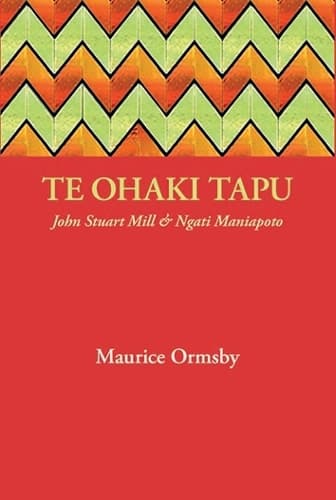
Te Te Ohaki Tapu: John Stuart Mill & Ngati Maniapoto
Find your copy...
Te Ohaki Tapu - the Formal Pact - was made between 1882 and 1885 by five tribes of the Rohe Potae (King Country) led by Ngati Maniapoto, with the colonial government which needed land for the main trunk railway line. The iwi sought access to the wider money economy, European agricultural technology and development finance. The influence of Utilitarianism - and of its proponent John Stuart Mill, the philosopher and economist - is evident in Te Ohaki Tapu, as it is in the 1835 Ngapuhi declaration of independence and the 1840 Treaty of Waitangi. Unlike the Treaty, Te Ohaki Tapu took place in the context of an established New Zealand legal system and a parliamentary democracy. Although the government did not honour the Formal Pact, Ngati Maniapoto did, even to the point of going to war on behalf of its erstwhile enemies. The agreement has yet to be tested in court. The Utilitarian basis of our public policy is still apparent today. It explains the marked difference in approaches to lawmaking between New Zealand and countries such as Australia and the United States.
About the Author
Maurice Ormsby was born in Te Kuiti and grew up on a dairy farm at nearby Te Uira after his parents - John Ormsby, Capt 28 (Maori) Battalion, and nursing sister Kate O'Gorman - returned from World War Two. A member of Ngati Te Waha hapu of Ngati Maniapoto, Maurice holds an MA with first class honours from Canterbury University and a D Phil in Philosophy from Oxford University.





